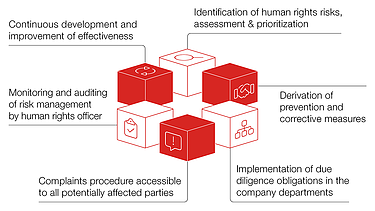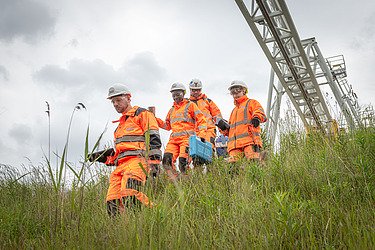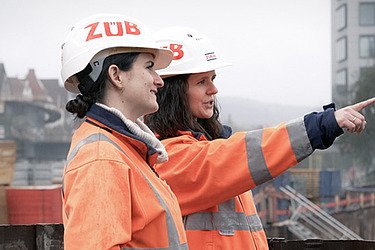Social sustainability in the supply chain
Responsibility for human rights and sustainability along the supply chain
As an international construction group, we are dedicated to protecting human rights within our sphere of influence. STRABAG is committed to the following agreements with regard to social sustainability:
- the United Nations Universal Declaration of Human Rights
- the International Labour Organization’s Declaration on Fundamental Principles and Rights at Work
- the UN Women’s Empowerment Principles.
STRABAG is also a member of the United Nations Global Compact and submits an annual progress report on its activities to comply with the ten global principles in the fields of human rights, labour, environment and anti-corruption.
These internationally applicable standards are included as key principles in our Code of Conduct and other Group guidelines.
Besides the social aspects along the supply chain, the environmental aspects are also fundamental to achieving our strategic sustainability goals. Detailed information on this can be found here.
Social compliance management system
The social compliance management system describes a process with the aim of fulfilling our human rights and environmental due diligence obligations and minimising risks in our own business activities and throughout the entire upstream and downstream supply chain.

Human rights officer
To reinforce the importance of human rights throughout the Group and to avoid human rights risks, the role of Human Rights Officer was reassigned in 2023 with modified and expanded tasks and responsibilities. The main tasks of the Human Rights Officer involve monitoring the social compliance management system for its effectiveness and advising the Management Board, which is responsible for the fulfilment of human rights due diligence obligations, on human rights matters. The Human Rights Officer is not bound by instructions and is free to act independently.
Whistleblower platform
Potential human rights violations, such as discrimination at the workplace, can be reported (anonymously, if desired) by employees and external persons via an online whistleblower platform. It is also possible to report an incident directly to a designated contact person (ombudsperson). These reports enable us to follow up on grievances, initiate investigations, take appropriate action and further minimise risks.


